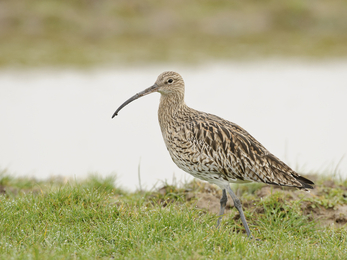Every winter, the UK is visited by thousands of birds during their migration. While this time of year feels very cold and lifeless to us, for birds living north and east of the UK it’s the perfect destination for a seasonal break. In comparison to other countries in the arctic regions, the UK has a milder winter, making it a great area for birds to prepare for the spring breeding season. Many birds also use the UK as a stop‐off to fuel up before migrating even further south to Europe and Africa.
The Solent provides a great habitat for wading birds due to the number of invertebrates and marine plants in its intertidal mudflats. These species are a great source of food which are key to the birds' survival. As a result, the Solent one of the most important places in Western Europe for birds, and much of the area has been designated as RAMSAR sites and Special Protection Areas (SPA). A RAMSAR site is a wetland area that is recognised as being of international importance under the Ramsar Convention, and a SPA is a designation set by the government under the European Union Directive on the Conservation of Wild Birds. These designations mean that the sites must be carefully managed in accordance with strict frameworks to conserve them for the future.




